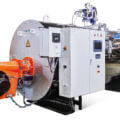The demand for electronic devices in the last couple of years has transformed the market into a sort of treasure hunt. If you happen to be a keen videogamer, finding PS5 consoles in recent times will have caused you a few headaches. Likewise, you will have seen fewer mobile phones in stores, and the available ones will have had – and, to some extent, still do have – costly price tags.
A substantial global chip shortage is at the heart of the problem, leading to an array of hurdles that are impacting many different industries. The automotive sector, in this respect, has not been spared. In fact, if you have been looking for a new vehicle or a business car or van, you may have noticed that your options in the past two years have become somewhat limited. As things stand, predictions are not rosy, and the issue is likely to persist for some time.
But what has been causing the disruptions? How is it impacting drivers? Here, with the help of van leasing company: Van Ninja, we take a look at how the chip crisis is affecting the automotive industry, while also highlighting a positive exception.
What is happening?
The pandemic has had an enormous effect in recent years. It has taken numerous lives, changed the way we go about our daily routines, and forced changes to both our education system and work schedules. It is fair to say that the existing global semiconductor shortage is one of its many consequences too.
While more and more people started working from home and required new electronic devices, factories had to run at reduced capacity because of social distancing rules. Therefore, as demand increased, chip supply gradually dried up. What’s more, other unfavourable events, including a fire at a chip plant in Japan and unexpected frozen conditions in Texas, contributed to delays in the delivery of semiconductors worldwide.
As mentioned, the automotive industry has been – and continues to be – on the wrong end of this chip crisis too. Automakers rely heavily on these tiny components, even for basic cars and vans. From in-built navigators to infotainment systems, vehicle tech features need these little ‘brains’ to function properly. Hence, with reduced chip availability, car and van production has slowed considerably.
This negative ‘trend’ is set to persist during the next months, if not years. Toyota, for instance, is still having a hard time because there are simply not enough chips around. As one of the world’s largest automakers, the Japanese multinational has witnessed a substantial 21% fall in its operating profits and expects a manufacturing reduction of about 30,000 vehicles in February 2022. In the whole of 2021, Toyota missed out on the planned production of 1.1m vehicles, whereas Ford fell short of an estimated 1.25m cars and vans.
As technology advances at an exponential rate and vehicles become more modern and complicated as a result, chips will be increasingly essential. But with the ongoing semiconductor shortage, disruptions are bound to carry on for the foreseeable future.
The impact on drivers
Automakers are not the only group suffering from this everlasting chip crisis. Drivers and wannabe vehicle owners are being affected as well. One of the most obvious drawbacks for potential buyers is that they are not as spoilt for choice as they used to be. With fewer vehicles available on the market, they are ultimately left with limited options.
Moreover, drivers may have to wait longer to finally get behind the wheel of their new automobile. With prolonged lead times, dealerships are experiencing more frequent delays to vehicle deliveries. This means that, on the whole, their waiting time may lengthen up to six months.
Another consequence is the rise of vehicles’ price tags. As suppliers struggle to meet demand, the cost of cars and vans has inevitably escalated. In this respect, used cars are no different. The most popular used-vehicle models have become between 30% and 53% more expensive than they were 12 months ago.
On a brighter note, however, there is a way to tackle this entire situation. Car and van leasing can provide an excellent alternative to the existing hurdles of car ownership. If you are in urgent need of a vehicle for your business, leasers will have a wide range of options at affordable rates.
Jonathan Beadle, Commercial Manager at Van Ninja, said: “Despite the ongoing chip crisis, Van Ninja has not experienced issues with vehicle availability. We have a large number of van models, both in different sizes and payloads, to suit you and your job duties.
“The price of vehicles may be soaring, but van leasing allows you to hit the road in a flash and with no hefty expenses. What’s more, if after a while you fancy a change of pedals and steering wheels, you can always return your current van and replace it with a new model.
“Our fleet is always rich with options, and van drivers can pick the vehicle that best suits their professions or needs.”
From severe delays to increased costs, there is no hiding that the global chip shortage is putting the automotive industry to the test. At this moment in time, it seems unlikely that things will start easing again. If in search for a new vehicle, whether for work or personal reasons, leasing can ultimately represent a great way to hit the streets with no inconveniences or setbacks.








